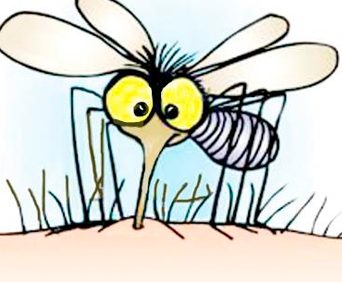Visitor to Cayman brings in dengue fever
 (CNS): Public Health officials have confirmed that a case of dengue fever which was brought in by a visitor to the Islands. Since July 2013, health officials have investigated five cases of dengue, and from the results received so far from the Caribbean Public Health Agency, three were negative and one was positive. The confirmed case was symptomatic prior to arrival and sought medical attention the next day. “As the onset was prior to arrival, this is an imported case,” noted Dr Kumar, Medical Officer of Health. But with the current increase of cases in the region, medical personnel are on alert for more local cases.
(CNS): Public Health officials have confirmed that a case of dengue fever which was brought in by a visitor to the Islands. Since July 2013, health officials have investigated five cases of dengue, and from the results received so far from the Caribbean Public Health Agency, three were negative and one was positive. The confirmed case was symptomatic prior to arrival and sought medical attention the next day. “As the onset was prior to arrival, this is an imported case,” noted Dr Kumar, Medical Officer of Health. But with the current increase of cases in the region, medical personnel are on alert for more local cases.
“While dengue fever is not endemic to the Cayman Islands, there was an outbreak in the 2012 season with sustained transmission of the disease. Although there has been no local transmission this yearthus far, it is always wise to avoid mosquito bites by covering up at sunrise and sunset when the dengue carrier, the Aedes aegypti mosquito, is the most active,” added Dr Kumar.
He also emphasized that for the Aedes mosquito to transmit dengue, they must bite infected persons.
Dr Kumar reminded the public that they can help reduce the Aedes aegypti population locally by clearing yards of containers that can hold water, as these are favourite breeding sites.
Most people recover without any complications, using pain relievers and bed rest. Once a patient has developed a fever, the infectious period lasts for one week only. Dengue symptoms include high fever; severe headache; backache; joint and eye pain; nausea and vomiting; and rash.
Countries in our region who reported having dengue and severe dengue as of September 2013 include Antigua and Barbuda, Anguilla, Argentina, Barbados, Belize, Bolivia, Brazil, British Virgin Islands, Columbia, Costa Rica, Curacao, Cuba, Dominican Republic, El Salvador, Ecuador, French Guiana, Guadeloupe, Guatemala , Honduras, Martinique, Nicaragua, Jamaica, Mexico, Peru, Puerto Rico, St Lucia , St Martin , Suriname, US Virgin Islands, and Venezuela.
For more advice on mosquito control, contact Mosquito Research Control Unit on 949-2557 in Grand Cayman, or 948-2223 on Cayman Brac; and Department of Environmental Health on 949-6696 in Grand Cayman, or 948-2321 in Cayman Brac.
Category: Health


So true 15:47. So far we have been lucky with so many running to and from Cuba that one hasnt brought their cholera here too.
WTF is wrong with the "official keepers of the information gate"? Why is everything a big secret?
Tell us where Patient X came from!